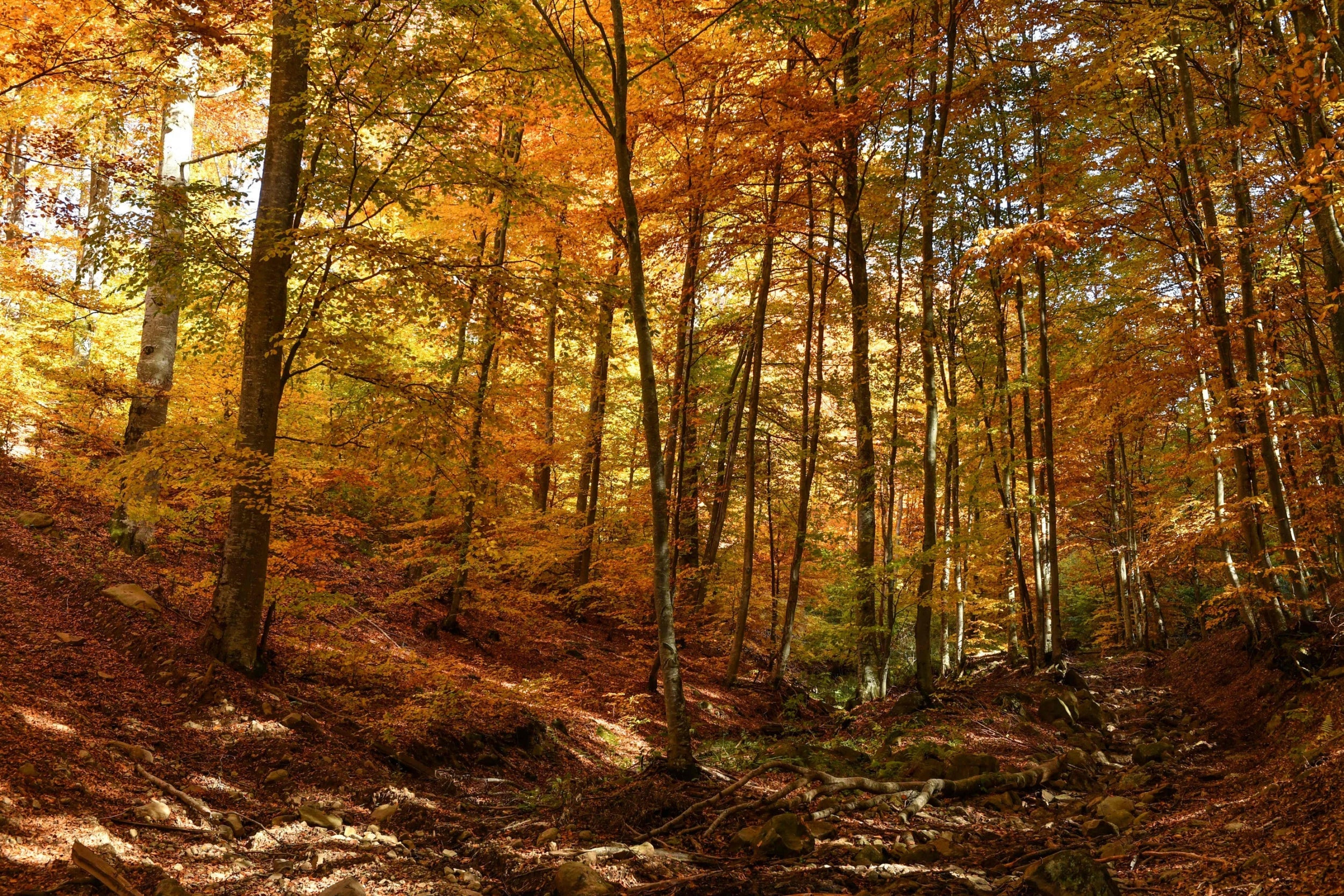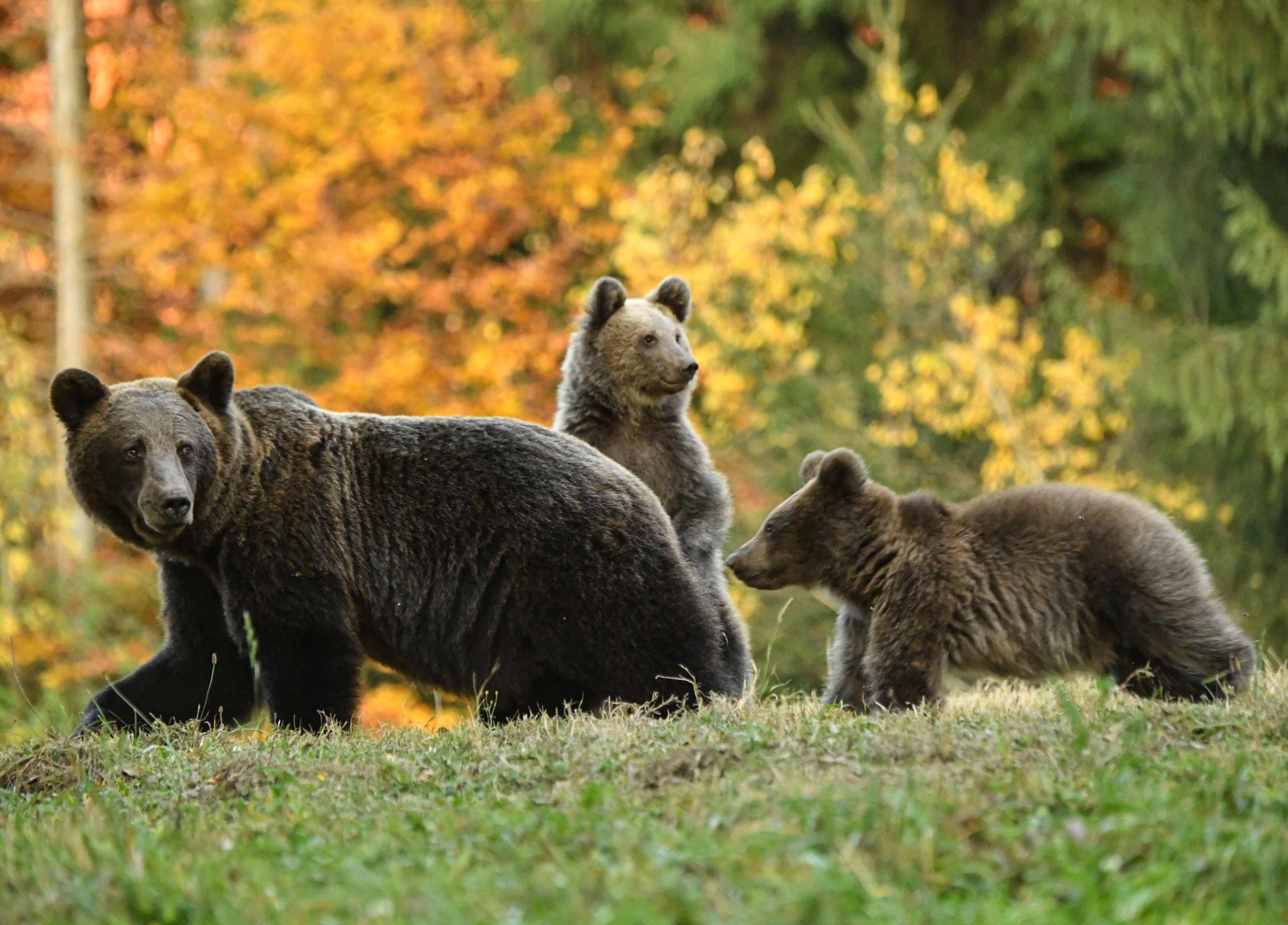‘We are running out of time’: Murder and corruption threaten Europe’s last great forests
Recent murders highlight destructive battle between those trying to protect ancient forests and illegal loggers, writes Stephen McGrath in Bucharest

Your support helps us to tell the story
From reproductive rights to climate change to Big Tech, The Independent is on the ground when the story is developing. Whether it's investigating the financials of Elon Musk's pro-Trump PAC or producing our latest documentary, 'The A Word', which shines a light on the American women fighting for reproductive rights, we know how important it is to parse out the facts from the messaging.
At such a critical moment in US history, we need reporters on the ground. Your donation allows us to keep sending journalists to speak to both sides of the story.
The Independent is trusted by Americans across the entire political spectrum. And unlike many other quality news outlets, we choose not to lock Americans out of our reporting and analysis with paywalls. We believe quality journalism should be available to everyone, paid for by those who can afford it.
Your support makes all the difference.Home to Europe’s largest swath of pristine, old-growth forests, Romania’s otherwise idyllic woodlands have become the perhaps unlikely setting for a series of murders – pitting the “wood mafia” against those trying to protect these ancient ecosystems.
Encompassing some 7 million hectares of total forest cover, around half a million of which are old-growth, this “Amazon of Europe” supports the continent’s biggest brown bear population, and carnivores such as wolves and lynx.
But this largely unspoilt wilderness, under threat from illegal logging, is now mired in a battle involving violence and corruption, culminating in the recent murder of two forest rangers.
Forest ranger Liviu Pop, 30, was shot dead two weeks ago while investigating a report of illegal logging in Maramures, northern Romania. A father of three, Pop was the second forest ranger killed in just over a month. In September, Raducu Gorcioaia, 50, was beaten to death in the Pascani forest district. He also left behind three children.
The murders appear to have brought the issue under renewed focus, and last weekend around 4,000 protesters marched in the streets of Bucharest. Many chanted “thieves, thieves!” while some carried placards that had a direct demand: “Stop the wood mafia!”
The brutal murders have left forest rangers fearing for their lives and police continue to investigate both cases.
Three people in the Gorcioaia case, a 50-year-old man and two teenagers, were arrested and investigations are ongoing, while two suspects in the Pop case have reportedly taken polygraph lie-detector tests, and the prosecutor is waiting for the results.
The environmental campaigners behind the protest have called on the government to increase measures to protect the forests and to put an end to the violence.
“Over the last 12 years we’ve lost close to 140,000 hectares of pristine, virgin forests and the violence will probably continue,” says Cirprian Galusca, Greenpeace Romania’s forest campaign coordinator.
Campaigners want the government to urgently resume the use of a satellite traceability system to track the disappearing forests. That technology would detect illegal cuts, lost forest cover, track timber transportations and automatically alert authorities.

Use of this technology was launched in late 2016 but abruptly halted in early 2017 after the government claimed it was setting off too many false alarms.
In reality, campaigners say, that technology would end illegal logging.
“People realise that the beautiful forests are disappearing in front of our eyes in a really dramatic way and we need to stop it because it’s all in jeopardy,” Galusca says.
Romania’s new environment minister, Costel Alexe, vowed in a statement this week to do everything in his power to end illegal logging. He also said that forest rangers must be equipped to prevent more murders by “wood thieves”.
Romania’s forests, much of which are in the Carpathian Mountains, are disappearing faster than previously estimated.
Recently leaked data from a 10-year government report, the National Forestry Inventory, revealed that each year 38 million cubic metres of wood are cut from the country’s forests — 20 million cubic metres of which are illegal.
Those illegal 20 million cubic metres – of which just 1 per cent, 200,000 cubic metres, were officially recorded by authorities – are estimated to be worth around 1 billion euros.
The alarming statistic added fuel to the fire for protesters who demonstrated on Sunday, with Forest March demonstrations also held by Romania’s diaspora in Brussels, Madrid and London.
“This is a solidarity protest with the forest march in Romania to raise awareness internationally out of grave concern for the loss of the virgin forests and the violence against forest defenders,” says 35-year-old Anca Giurgiu, who organised the London protest, held outside the Romanian Cultural Institute in Knightsbridge, where dozens turned out.
“We live in times of unprecedented ecological crisis when countries are declaring climate emergencies; while in Romania illegal logging and logging in natural parks is happening faster than ever before,” she says.
Last week an open letter signed by more than 40 NGOs was sent to Romania’s president, Klaus Iohannis, and his government. It called on both parties to publicly condemn the rangers’ murders.

The letter also called on the Romanian government to “take concrete action to dismantle the Romanian ‘timber mafia’ network”.
In 2018, forest ranger Leontin Malita, 54, was savagely beaten by a group of men and left for dead while trying to protect forests in Timis County, in west Romania. He spent almost two months in hospital and he is still fighting for justice. There are suspects, but he complains that his case is moving slow.
“Fear is causing rangers to turn a blind eye to illegalities [in the system],” Malita tells The Independent. “The biggest fear [for rangers] is for their lives and their second fear is that they’ll lose their income.”
Malita claims that violence against rangers often occurs when forest workers fail to follow orders from their superiors, alleging that there is deep corruption in the forestry sector. He believes that police are hand-in-hand with illegal loggers and even some rangers, in a system of blind-eye complicity.
“Everybody in the system is protecting each other,” he adds.
Forest rangers aren’t the only ones living in fear of the so-called “wood mafia”.
According to Greenpeace’s Galusca, in many villages throughout Romania “people are afraid to talk about illegal logging because of the high levels of corruption,” he says. “It implicates so many people.”
One of the early suspects in the Pop murder case is reportedly the nephew of the county’s head prosecutor. A local claims that the suspect delivered firewood to his aunt’s house the day after the murder.
Pop’s mother told local media that her family fears for their safety, and she worries that no one will be held accountable for her son’s death.
Last week, Silva Trade Union Federation which represents Romsilva, Romania’s state-owned forest management company, which manages almost half of the country’s forests, staged a 200-strong demonstration outside parliament in Bucharest to protest the deaths of their colleagues.
The union is calling for more of its 16,000 rangers to be armed with guns, but Malita believes that more guns would complicate the cycle of violence.
For now, the race to save Europe’s last unspoiled wilderness remains fraught with danger.
“People are dying in an EU country,” Giurgiu adds. “This needs to stop and we are running out of time.”
Join our commenting forum
Join thought-provoking conversations, follow other Independent readers and see their replies
Comments